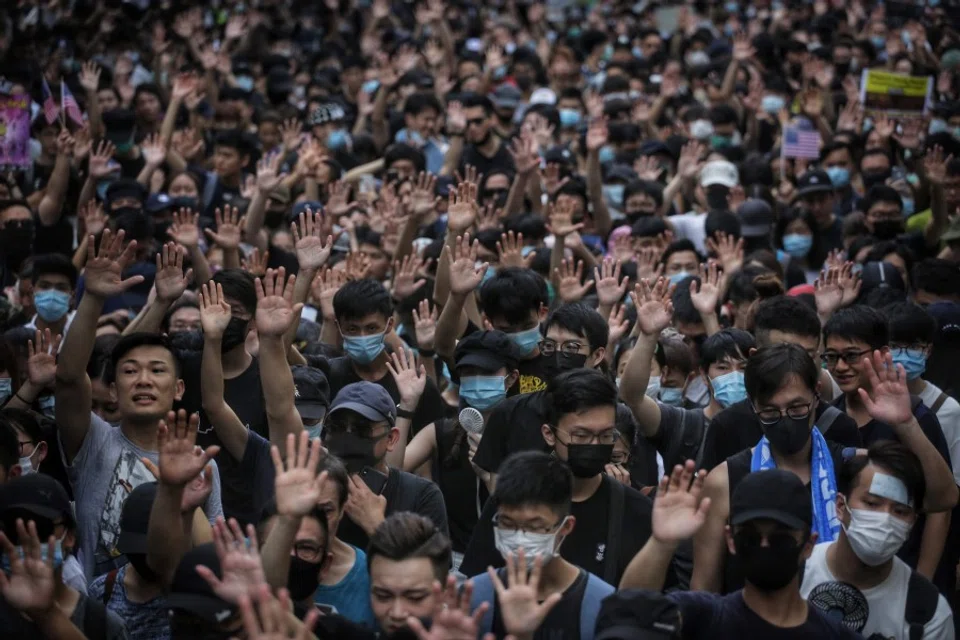Housing measures the top priority in resolving HK's woes
With the ongoing unrest in Hong Kong, what can its government do to soothe the anger?

Being concerned about the political unrest in Hong Kong, between July and September, I wrote to the Hong Kong Economic Journal and Lianhe Zaobao. I discussed the underlying reasons and deeper conflicts behind the current chaos, pointing out that this chaos has grown and sustained itself independently of the underlying forces behind it, which has ultimately made it more difficult for the Hong Kong government to resolve the dilemma.
The best option for the Chinese and Hong Kong governments is to balance the soft and tough approach and soothe public sentiment rather than suppress it.
The China and Hong Kong governments will not agree to the people's "five demands", which have been further complicated by certain factions. And even if they did agree, these factions would say that it is too little too late, leading to further demands from protesters. The best option for the Chinese and Hong Kong governments is to balance the soft and tough approach and soothe public sentiment rather than suppress it. While I did not elaborate on the "tough approach" in my earlier writings, I noted that the soft approach and soothing public anger meant not arguing about the never-ending five demands, but simply rolling out measures that would resolve the underlying causes of the unrest.
This included a suggestion for the SAR government to work with developers to explore how it might acquire more farmland in the New Territories at cost price or no cost, and to immediately announce a sufficient amount of public housing on this farmland as well as other land, even if it were not completely ready, and open them for application.

The government should tell applicants that the land planning and land foundation works would take at least one to three years. With an additional three years of construction time, this would mean applicants could only move in roughly four to six years after successful application. The government should open the application at the land planning stage because, in this time of make or break, it has to demonstrate to the people, especially the more peaceful group of young people, as quickly as possible that they can own their public flat or move into low-rent flats within a reasonable amount of time. This will generate greater willingness to give the Hong Kong government one more chance.
I have also proposed several other measures to soothe public anger. The first is to halve the quota of one-way permits that allow Mainland Chinese with relatives in Hong Kong to move there. Next, appropriate tightening of the Individual Visit Scheme (allowing travellers from Mainland China to visit Hong Kong and Macau on an individual basis, rather than on business visas or in group tours) should be instituted. In addition, capable officials should be appointed to redevelop shopping districts along the border and implement taxes and administrative measures to encourage Mainland sellers of cheap goods to move to these districts. Hong Kong-recognised primary and secondary schools should be set up in Shenzhen for children with Hong Kong citizenship, but whose parents are not both Hong Kong citizens, to ease the frustration of Hong Kong parents while providing these children with sufficient educational opportunities.

Other measures include restricting Mainland buyers of Hong Kong health insurance policies from taking up public hospital resources and limiting them to private hospitals, significantly stepping up training programmes for medical personnel to reach Singapore's standards within eight years and increasing the additional buyer's stamp duty for foreign homebuyers to 30%.
I am happy to see that the China and Hong Kong governments, as well as Hong Kong's pro-establishment Democratic Alliance for the Betterment and Progress of Hong Kong (DAB), have recently started to push for taking back farmland under the Lands Resumption Ordinance to support the construction of public housing. Hong Kong newspapers have reported that Ms Carrie Lam has also sought the DAB's views on reducing one-way permits.
I am pleased that Hong Kong's Chief Executive is finally acknowledging that Hong Kong's high property prices and severe lack of public housing is the main cause of the current political chaos. If the Hong Kong government can keep building residences and public housing, in about ten years the general population will no longer suffer from high property prices, high rents, and tiny living spaces. That would be a huge boon. Furthermore, if these housing issues are resolved, the government's credit would definitely go up, which would narrow the space for opposition.
If the Hong Kong government lacks determination or its enthusiasm does not last... or other factors result in more talk without real action, then it will be just a matter of time before the Chief Executive and the government lose office...
At the same time, I am concerned. If the Hong Kong government lacks determination or its enthusiasm does not last, and if the culture of shirking among Hong Kong senior officials, long bureaucratic processes, interference by those who want short-term goals, or other factors result in more talk without real action, then it will be just a matter of time before the Chief Executive and the government lose office, gaining a bad reputation to boot. At that point, Hong Kong's political situation will be even more chaotic.
In my subsequent essays, I will elaborate on the importance of other measures to soothe public anger. I will also talk about how the current political chaos will trigger an economic downturn in Hong Kong and might trigger a bursting of Hong Kong's current property bubble. Once that happens, many owners of negative assets will take to the streets.



![[Photos] Fact versus fiction: The portrayal of WWII anti-Japanese martyrs in Taiwan](https://cassette.sphdigital.com.sg/image/thinkchina/3494f8bd481870f7c65b881fd21a3fd733f573f23232376e39c532a2c7593cbc)

